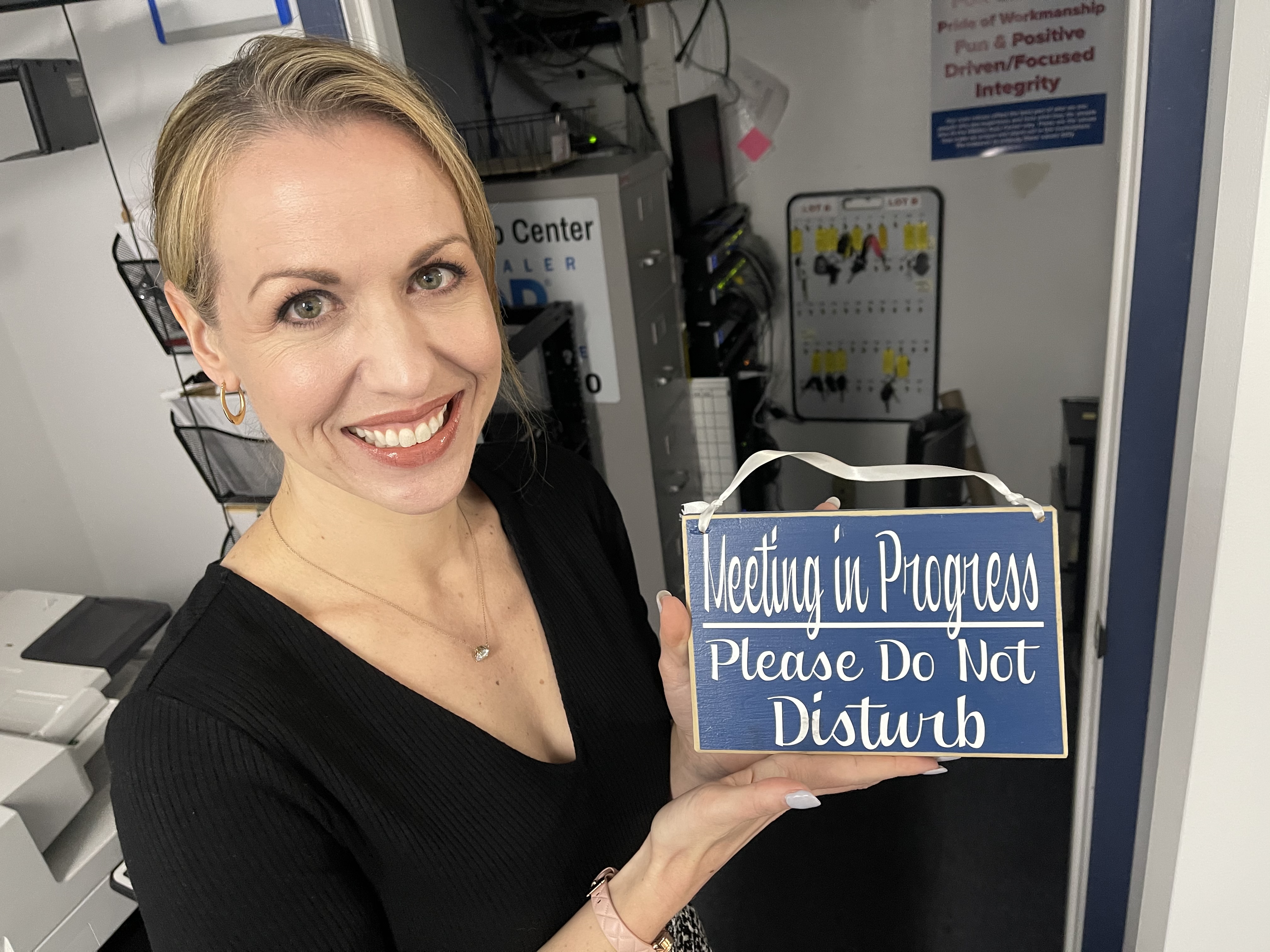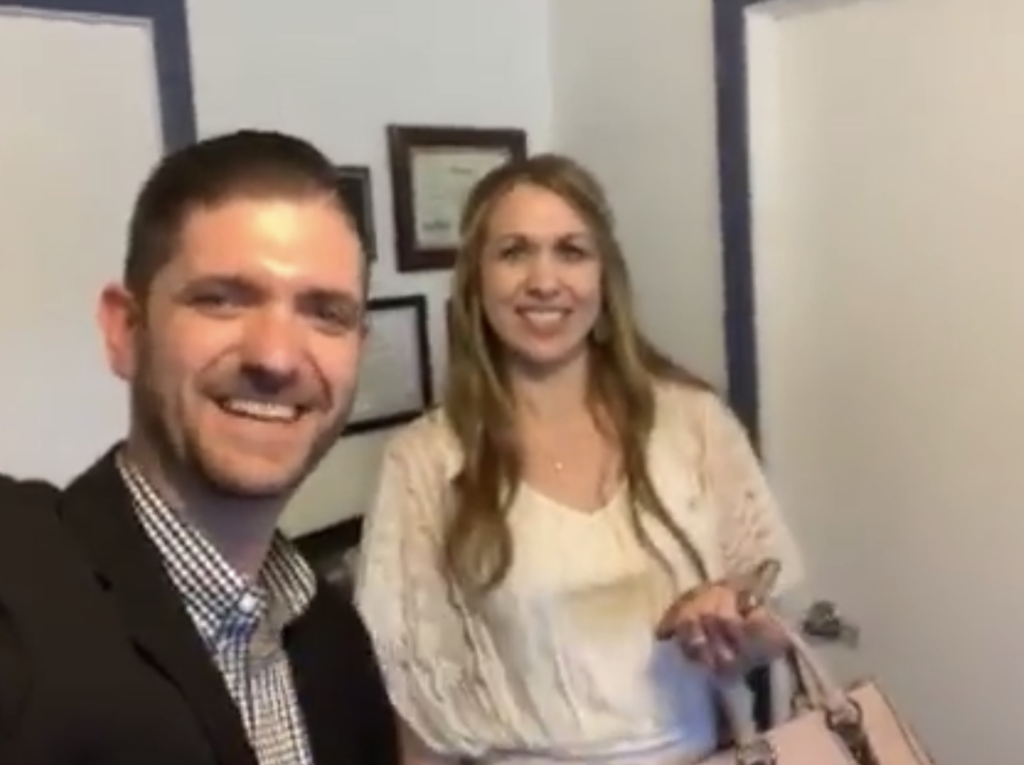There are about 17,000 new car dealers across the country and over 20,000 non-franchised used car dealers. Most of which, have at the very least one desk manager. This person, often called “The man (or woman) behind the curtain.”, plays a critical role in any dealership. It is this person’s job to leverage their salespeople to ensure customers make the right purchase for both the customer and the dealership. The type of purchase that will ensure the dealership remains profitable, but also enhances the brand of the dealership through the experience of the transaction, and simultaneously builds the skills and confidence of the salesperson involved.
After a decade desking thousands of deals as a desk manager and having led desk managers as a GSM, I am able to share some great insights around desk management. Now, coaching dozens of dealers and their management teams, and conducting cultural assessments across the country: these awesome peoples unique perspectives have taught me what makes a team believe their desk manager is phenomenal vs average. I share these insights in hopes that desk managers continue to grow and improve, or that new desk managers who aren’t shown the ropes are able to learn what it takes to be amazing at the desk vs mediocre. Because I believe an amazing desk manager can have a vast positive impact on their team.
So, what does make a phenomenal desk manager compared to an average desk manager? Here is what I believe makes a desk manager extraordinary!
Wants their team to earn a great living, and tracks this for each individual salesperson.
Desk managers that truly care about their team’s financial wellbeing feel responsible for their teams’ income level. While it certainly does not all rest on their shoulders alone, they take this very seriously. Some desk managers even track their salespeople income objectives for the month, and are consistently reminding their individual people where they are at, in relation to their objective for the month. They want the salespeople to feel like the manager cares about their income as much as they do. By doing so, they know their manager has their best interest at heart. It is important to know that growth and accountability also come with measurement and follow up. The true leader of desking helps their people reach their income goals by being proactive and checking in after each deal, throughout the month, with each person.
Trains before the game and coaches during the game.
The Fabio of the four square is proactive in their approach to people development. When their people aren’t busy, they will grab employees and roleplay real and relevant negotiation or business transaction scenarios. They believe in continuous improvement and are always seeking ways to help each employee grow where they need it most. They will coach people on the metrics within their CRM that could ultimately impact results. Some of the best desk managers I work with across the country will even assign books for their people to read and have team meetings and discussions about them. They may have their people rate themselves on various selling related activities and determine who could help them train the rest of the team, or ask who wants training on which topic. This all happens during down time. Once a customer is engaged; however, it’s game time. The training stops and coaching kicks in. They will stay calm, cool and collected. Even when faced with the most challenging customers, they coach their people through it. They leverage this on the job coaching to help each salesperson develop problem solving skills and adopt the right mindsets that are duplicatable and sustainable. They know that being a crutch for their employees and solving their problems for them is not scalable and hinders success. They seek out opportunities for growth during the game, and ask the right thought provoking questions at the right time. This coaching ensures ensure guided autonomy takes place and salespeople continue to think for themselves.
Ensures salespeople follow the process.
We all know that it is possible to sell a car without following the entire road to the sale. The challenge that allowing salespeople to circumvent the process creates, is that it lowers accountability to the process itself. Salespeople may sell some cars by skipping steps because a fraction of buyers don’t need the entire process. Ultimately, it’s all the sales that would require the full process completion for the sale to come to fruition that are at stake. An exceptional desk manager is process driven and seeks to be each employee’s accountability partner in ensuring that they act the same way. They are on the lookout for people in the act of skipping steps, and quickly make corrections. Allowing certain people to sell how they want, when they want, can also rub off on other less tenured employees. Unless there are clear expectations tied to tenure or performance, they ensure everyone sticks to the steps at all times.
Knows what’s going on and gives relevant info.
An extraordinary desk manager follows each customer interaction from start to finish. They are consistently communicating with the customer and the salesperson. Whenever necessary, they provide relevant information and add value to the situation at hand. Asking enough questions and reading all of the information within the CRM and DMS for each customer is critical to seeing the big picture. Tailor fit responses to customer questions and suggestions based on the customers personality, needs and wants, past behavior, desired traits, expectations, and progress through the process are critical. This awareness helps the manager give great information to their people and clients that lead to informed buying decisions with little buyer’s remorse that go exceedingly smooth.
Meets the customer early in the sale.
Seeking to avoid the “Man behind the curtain” perception, to set expectations and plant seeds that will help with the sale further along in the process, the exceptional desk manager seeks to meet customers early, and often, in the sale. Assuring the customer that they are in great hands with their salesperson. That the manager is always here to support them with your team adds a massive degree of value. It also shows the potential buyer the appreciation level that is necessary for them to not just feel good, but to feel great about their purchase.
They trust, but verify.
Buying a car is a stressful experience through the eyes of many customers. This is partly due to the stigma attached to automotive employees. Also, because customers don’t understand the buying process: the unknown creates fear. This fear and anxiety causes customers to put up a wall or sometimes lie to salespeople and managers. This phenomenon may also occur when a salesperson asks the wrong question at a bad time. In addition, salespeople may have facades. They know their salespeople have information that they may want to avoid sharing for fear of a negative reaction. An extraordinary desk manager doesn’t believe, “buyers are liars”, nor do they believe that their salespeople are. They trust people and give everyone the benefit of the doubt. This creates open dialogue and good communication which is necessary to be truly effective at the desk. It shows the customer and salesperson that they listen, and thanks to the law of reciprocity, ensures that they are listened to as well. On the other side of the coin, the manager also sniffs out when something isn’t quite right. They will verify reality at almost every impasse. The intent is to determine if the customer has been lied to and is misinformed. To uncover if the customer doesn’t trust the company or salesperson and as a result is offering a lie. Or to find out if the employee is fearful of sharing the truth or simply unaware that the information they possess can help make the deal. The leader can and will ensure proper guidance and response by trusting everyone involved but also verifying reality.
Holds people accountable and asks their team to do the same for them.
Not even the exceptional desk manager is 100% flawless in ensuring they accomplish everything that they set out to do each day. No one is perfect! However, the exceptional desk manager will work with other people to co-create action plans and ensure that these plans become reality. They will hold people accountable the way they want to be held accountable. They may even ask others around them to help hold themselves accountable, which ultimately ensures the long-term success of everyone. Accountability is a mindset for the exceptional desk manager. As a result, deals go smoother, finance can operate at a higher capacity and you can count on them and their team to get things done.
Works deals the same as other desk managers.
Alignment and uniformity helps everyone stay on the same page. When people are on the same page, they know how to approach the desk. Any stores with multiple desk managers can vastly improve the employee experience when putting together deals in this way. Working with dealers across the country, one of the primary complaints I hear is about salespeople, “Playing Mommy Daddy”, with different managers to accomplish the result they want. This occurs primarily when the managers each do things their own way, and the process or methodologies are inconsistent. The exceptional desk manager will try to follow the same order of operations as the other managers do to help ensure alignment and consistency.
Knows how to leverages ALL the tools at their disposal.
The best gym set in the world won’t help you get buff, unless you use it. Then if you use that gym set without knowing how, there is a great probability of injuring yourself. Most dealers invest thousands of dollars in some awesome tools. (and some not so often, but that’s an entirely different topic) Everything from used car appraisal software, website plugins, to CRM technology can help the tech savvy desking star, rock out extra deals, build value in the purchase for the customer, or streamline and enhance the sales process for the dealership. Often these tools go underutilized and great opportunities to grow the business are wasted. Know what tools are in your toolbox and use them at the right time.
Understands different communication styles and flexes them accordingly.
There are many ways to communicate, so what is the best way? The way that the buyer prefers. The phenom of automotive desk managers can identify which method each customer prefers after a brief conversation with the customer or sales associate, or sometimes even after having read the notes in the CRM. They also understand each of their salespeople’s preferences and know how to flex to them. By doing this, the manager can read between the lines on where each deal sits as it progresses. Then the desk manager will ensure the language, information and delivery is set for the salesperson to tailor to the customer! Sound crazy? If you have a fact and data driven customer that likes to crunch numbers and analyze the information, and a fast-talking story telling excitable salesperson, the deal may be doomed! Unless the exceptional desk manager slows the deal down, offers up the facts, data, and time frame that will help the salesperson help the customer make an educated and informed decision! On the other hand, if you have a thoughtful mindful customer with a type of customer that is hard charging, push the car over the curb to accomplish the results type of salesperson, the pro manager will load the lips to ensure thoughtful questions are asked and concerns are expressed.
Created a fun exciting and positive experience for salespeople.
What is the experience like when your salespeople touch desk? Is it stressful? Are their jobs threatened? Is it berate and browbeat? Is it rewarding and fun? Is it positive and exciting? Does the experience make them want to do it again or avoid it like the plague? I loved working deals with my first and only sales manager in the car business. The man, that I was lucky enough to replace when he moved on, made desking deals extremely fun. There was no customer challenge that he wouldn’t help you battle through as best he could. You always left his office feeling confident and excited that the ammo he has given you would work. When it didn’t, and you did exactly as asked, he would take the blame too. You were recognized for a job well done and offered training and coaching when there was opportunity to grow.
Shows extreme appreciation.
Gratitude is a great way for a desk manager to show humility and appreciation. Every time a salesperson drops a deal on your desk, acknowledging their hard work and dedication to take a deal that far is paramount. In addition, they show the customer extreme appreciation for their business. Only with extreme appreciation can others truly understand how important their role is in your career and life. The most grateful guys and gals of the sales desk will say thank you a minimum of 3 times while working each deal!
Knows how to build value through others.
When you talk about building value, it can sound so vague. One of the ways I interpret value building, means to give insights that are aligned to what the buyer wanted but wasn’t aware of. Offering up something you know that they didn’t know which will help them make a good or better decision. The best way to find out what they are or are not aware of something is to ask them! To build value through others is the equivalent of asking our salespeople to ask the right questions which will help them add value! The savvy sales manager will ask open ended questions to their salespeople like, “How do you know the customer wants to own this car right now?” Or “What do they already know about the car you are about to show and what do they want to learn more about?” By asking questions like these consistently, your team will begin to uncover these values adding opportunities which will help them help the customer!
Tries to avoid multi-tasking.
If I had a penny for every time a salesperson told me during a cultural assessment, “My manager ignores me when I’m talking.” or “If they would stop texting and listen…” Our brain can only process one thing at a time. Multi-tasking is a lie! The illusion of multitasking comes in someone’s ability to switch back and forth between two or more tasks quickly. Along with working deals, most desk manager jobs are comprised of many other to-dos. The extremely skilled desk manager is a master of time management. They know how much time is needed each day for desking deals and plan accordingly. They know when they need a time out to grind through paperwork, operational tasks, responsibilities like training, coaching, marketing, or any other slew of job requirements. They get them done when they are supposed to get done. When they are desking a deal with you, they seem 110% focused on what it is you and your customer need to move forward with a deal.
Loads the lips of the employees when working deals.
Salespeople of all tenure are faced with the “Want the deal more than what’s best for everyone.” mindset. The extraordinary sales manager can flex his or her communication style according to the customer and salesperson. He is able to tap into his real-world experience, automotive I.Q., employee E.Q., and ensure that they present the right things to say, and in the right way, to the salesperson on a silver platter. The salesperson should not only know what they are saying, but the ‘why’ behind the statement. In that way, they have the flexibility to make the statements more impactful and relevant. Loading the lips with more advanced salespeople should also be slightly different from new people. I recommend when working with veterans, to ask them, “what is your approach going to be?” or “please walk me through your close here so that we can make sure we that are on the same page.” After hearing their game plan, you have earned the right to load their lips. When you ask, you may be surprised by how many will already be thinking about saying what you were about to tell them to say! Other times, the exceptional desk manager will learn a new close from the veteran! Either way, every interaction involves a discussion about the next conversation with the client.
Ensure every deal feels like a deal and understands perception is reality.
A term I have learned to love from my time in Psychological Operations is, “Perception is reality.” If our customer believes that they got a great deal, then the reality is, they got a great deal! Salespeople see almost every deal, every day, as do managers. The challenge this presents is that knowing a customer paid less for the same car last week, puts a mental barrier up that makes us feel like the customer isn’t getting a great deal this time! An amazing desk manager works with salespeople on every deal to help the salesperson convey the value the customer is getting for the money. They understand a good deal is a state of mind, and they find out what makes the salesperson believe it truly is a good deal. The goal is to help the salesperson and customer both know that they were at the right place at the right time. This desk manager understands that price isn’t the only part of a great deal. It’s also finding the perfect vehicle for the customer and ensuring that the experience is fantastic. The perception of a great deal can be skewed one way or another depending on these other factors. Often, the customers that pay the least, also happen to believe that they paid too much! It is all perception, and the pro desk manager, knows how to create this perception in every situation possible.
Knows when to SWAT. Knows when to switch vehicles. Knows when to locate or trade for a car.
An extraordinary desk manager will have control over their aged inventory because they are great at ensuring salespeople land customers on the right cars that they need to move. Along with that, they will seldom lose deals because of inventory challenges. This is because they understand the value of contingency plans. They ensure that their salespeople have that 2nd or 3rd back up plan if the in-stock unit does not work. They know when the stakes are high. They will understand when a customer is going to walk and that it’s time to do a locate or buy a car from another lot to ensure that the customer will buy today!
Doesn’t give up.
An extraordinary desk manager treats every deal like it’s the most important deal of the month. They are tenacious and must outlast even the hungriest of salespeople when they have thrown in the towel on a deal. They have more stamina and power than the most stubborn buyer. No doesn’t mean no forever, it means not right at this second! Sometimes they overcome a dozen objections alongside their salesperson before even thinking about throwing in the towel. Even when the month is three quarters over and the dealership is halfway to its goal, they redouble their efforts. Consistently partaking in the right actions and activities that produce the results they want because they believe if they are going to miss an objective, it wont be because they didn’t give 150% effort. They simply do not give up.
Is a great problem solver.
The best desk managers believe that there is always a way to get to a yes. When they hear a “no”, they don’t get bent out of shape or down in the dumps. They determine that there is a problem that needs solving and they work with their salesperson and the customer to uncover and solve it. By doing so, everyone gets to move forward. Even if a problem cannot be solved right now and the customer has to leave, they work behind the scenes to solve the problems and sell a car. Their intuition may even work in the background, allowing them to breath life back into a dead deal before the month is over. How many extra deals can be engineered with a little problem solving and persistence at your dealership?
Knows the banks programs and the bank reps.
So many banks create so many possibilities. The exceptional desk manager is always understanding of what opportunity will fit best for the client and the dealership. Thousands in extra revenue can be generated quite quickly if your exceptional desk manager knows which banks pay the highest flat, or what lenders fund certain deals easier or faster. They are there also there as a safety net for finance. This will ensure no customer leaves over a finance or payment challenge. Salespeople often become frustrated and disengaged when finance steers the ship on credit and loan calls. The savvy desk manager inspects what he/she expects and isnt afraid to click another lender in dealertrack or pick up the phone and call a lender to get something approved or funded.
T.O. a deal when they can or flip a deal when they can’t.
Never letting a customer leave without touching desk is critical to a sales team’s success. In fact, the data I have accumulated shows that by increasing T.O. percentage by 30%, a salesperson’s closing percentage goes up 8%. That is a huge sales increase simply by ensuring that everyone gets a turn! The pro desk manager will be able to identify the moment at which a salesperson can no longer add value to a conversation with the customer. They will spring into action at that moment. The desk manager can’t be everywhere at once. Prioritizing time is essential for being efficient and effective at the desk. While the aficionado of dealership desking wants to T.O. every customer, they also know when it isn’t a good time to get roped into a lengthy close. As such, they are aware when it’s time to grab a good closer off the showroom floor and send someone else in to make the deal happen (even if it means a split deal). Ultimately, the salesperson is better off having 50% of a deal now, then 30% chance of a deal later with great follow up. The pro desk manager will ensure that each salesperson knows the value in a TO, and everyone will understand and welcome this part of the process with open arms.
Connects cross functioning dealership departments like finance, service and BDC.
The mantra of the dynamic desk manager is “there is no “I” in team”! Their process integrates cross functioning departments such as finance, BDC, service, even cashier into everything that they do. They believe that either the dealership employees succeed together or fail together. You may have heard the saying “business goes where it’s wanted and stays where it’s valued”. Involving the entire team can help customers feel this gratitude that leads to customer loyalty and satisfaction. Imagine a smiling introduction to your cashier to each customer. What if the porter pulled the car up front and wiped off the door handle before opening it for the customer to begin the delivery? What if the service customer had an extra coupon laying around that they gave to that special customer before they took their new car home? Selling used cars can be a challenge when customers have had a negative experience from buying elsewhere with mechanical issues. What if you brought your service manager or technician in to go over the shop bill to build credibility? What if before an unsold showroom visit left, you introduced them to the BDC person that would be following up long term to ensure the customer receives the information that will help them make a great decision? There are many creative ways to involve the entire team that create an amazing experience, build the dealerships brand, and generate customer loyalty (and the best desk managers do just that).
Goes to bat for their team.
The clever deal tactician knows how to pick their battles. They also know how critical it is to have a sales team that has their back. For them to have your back, they need to know that you have theirs. It’s the law of reciprocity! At some point in the game, a challenge will come from above that will threaten their team’s morale. A challenge could come from an unruly customer who is treating their car salesperson with utter and blatant disrespect. While unfortunate, this is an opportunity for the desk manager to go to bat for their team. Even if this amazing leader loses the battle, their team will have taken notice, and this will help everyone rally behind them. The excellent desk managers team has their back, knowing they will not let them fail. This is the ultimate safety net for any manager.
Stays cool under pressure.
The desk manager is constantly under fire. As soon as they hit the showroom floor, the phone is ringing off the hook. Vendors bombarding them from every angle and vying for their time. The customer from last weekend shows up to pick up the floor mats that they were promised, but that salesman is off work today! Salespeople line up to work deals. The owner of the store is on the line asking them to have a new demo cleaned up and have plates slapped on it for their friend who is coming to visit. Then you have your finance people that are coming up to the desk angry because a credit app was missing a middle initial! It never ends. Yet, the true desking stallion stays as cool as the other side of the pillow. They can prioritize tasks, say no to people, delegate out things that are of low or no value, and defer things that can wait until later. No matter how busy things get, they stay calm, because the steadfast leadership needed to get the job done comes from a state of confidence in both their ability and their knowledge that they are focusing on the right activity at any given time.
They believe in continuous improvement.
There are many more traits, habits and behaviors that make a desk manager excellent or even phenomenal instead of average. They know how to make the biggest impact in their career and the careers of others around them, by continuously growing and improving. The phenomenal desk manager may still be reading this because they want to squeeze every drop of knowledge out of an article they can! As a result, no matter what changes arise in the market place, they adapt and overcome them because they constantly learn and grow.
This is an excerpt from an upcoming book on automotive sales and leadership by Sean Kelley. Sean #thecarbizcoach has successfully managed dealers for a decade, drastically lowering employee turnover and increased profits, customer retention, and client satisfaction. Sean helps dealers achieve great results through their people and technology with a unique approach to coaching and people development. As Chief Business Development Officer of DriveCentric CRM, Sean helped them double their revenue in under 6 months. To experience the same results, contact Sean Kelley at Sean@carmotivators.com or Get Started For FREE With Coach Chat
#coachingthecarbusiness #thisistraining #coachingexcellence #winningcultures #leadership









 How to turn your sales and management team into predictable over-achievers, even if they’ve constantly been operating below their maximum potential.
How to turn your sales and management team into predictable over-achievers, even if they’ve constantly been operating below their maximum potential. This is NOT for owners or GMs that think they have to keep doing the same things they have always done just because that’s the way it has always been.
This is NOT for owners or GMs that think they have to keep doing the same things they have always done just because that’s the way it has always been. You’ll have customers that choose to buy from you because you offer the best value, not the cheapest prices.
You’ll have customers that choose to buy from you because you offer the best value, not the cheapest prices.

 Schedule your breakthrough strategy call now!
Schedule your breakthrough strategy call now!



